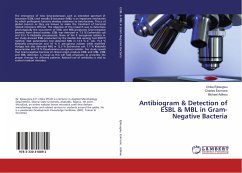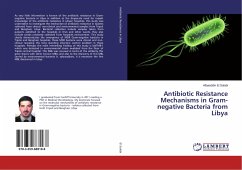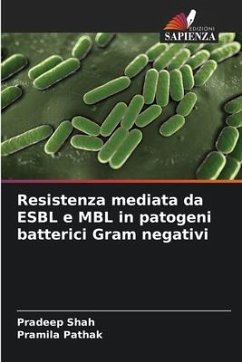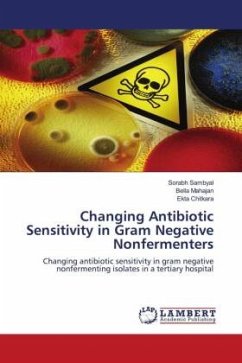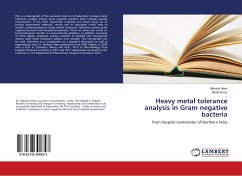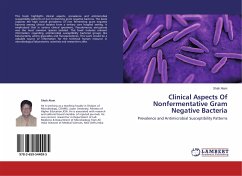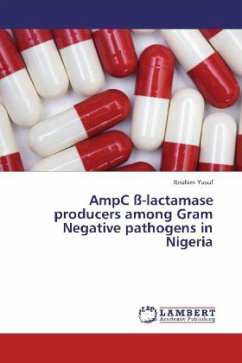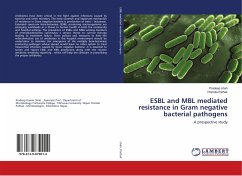
ESBL and MBL mediated resistance in Gram negative bacterial pathogens
A prospective study
Versandkostenfrei!
Versandfertig in 6-10 Tagen
36,99 €
inkl. MwSt.

PAYBACK Punkte
18 °P sammeln!
Antibiotics have been critical in the fight against infections caused by bacteria and other microbes. The most common and important mechanism of resistance in Gram negative bacteria is production of beta - lactamase. Extended spectrum beta-lactamase (ESBL) producing microorganisms are emerging worldwide as a threat to human health in both the community and hospital settings. The prevalence of ESBLs and MBLs among members of enterobacteriaceae constitutes a serious threat to current therapy leading to treatment failure. Strict policies and measures to limit the indiscriminative use of antibioti...
Antibiotics have been critical in the fight against infections caused by bacteria and other microbes. The most common and important mechanism of resistance in Gram negative bacteria is production of beta - lactamase. Extended spectrum beta-lactamase (ESBL) producing microorganisms are emerging worldwide as a threat to human health in both the community and hospital settings. The prevalence of ESBLs and MBLs among members of enterobacteriaceae constitutes a serious threat to current therapy leading to treatment failure. Strict policies and measures to limit the indiscriminative use of antibiotics in the hospital environment should be undertaken to minimize the emergence of the multiple beta-lactamase producing pathogen whose spread would leave no other option to treat nosocomial infection caused by Gram negative bacteria. It is essential to screen and report ESBL and MBL production along with the routine antibiotic sensitivity reporting , which will help the clinicians in prescribing the proper antibiotics.



